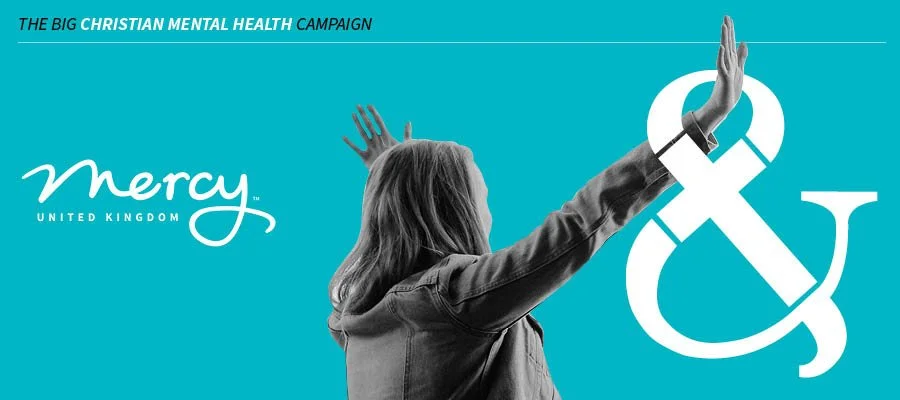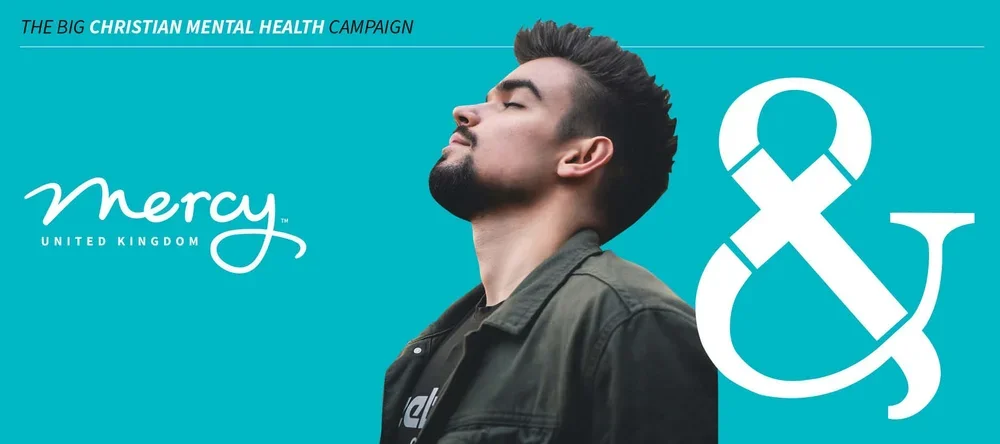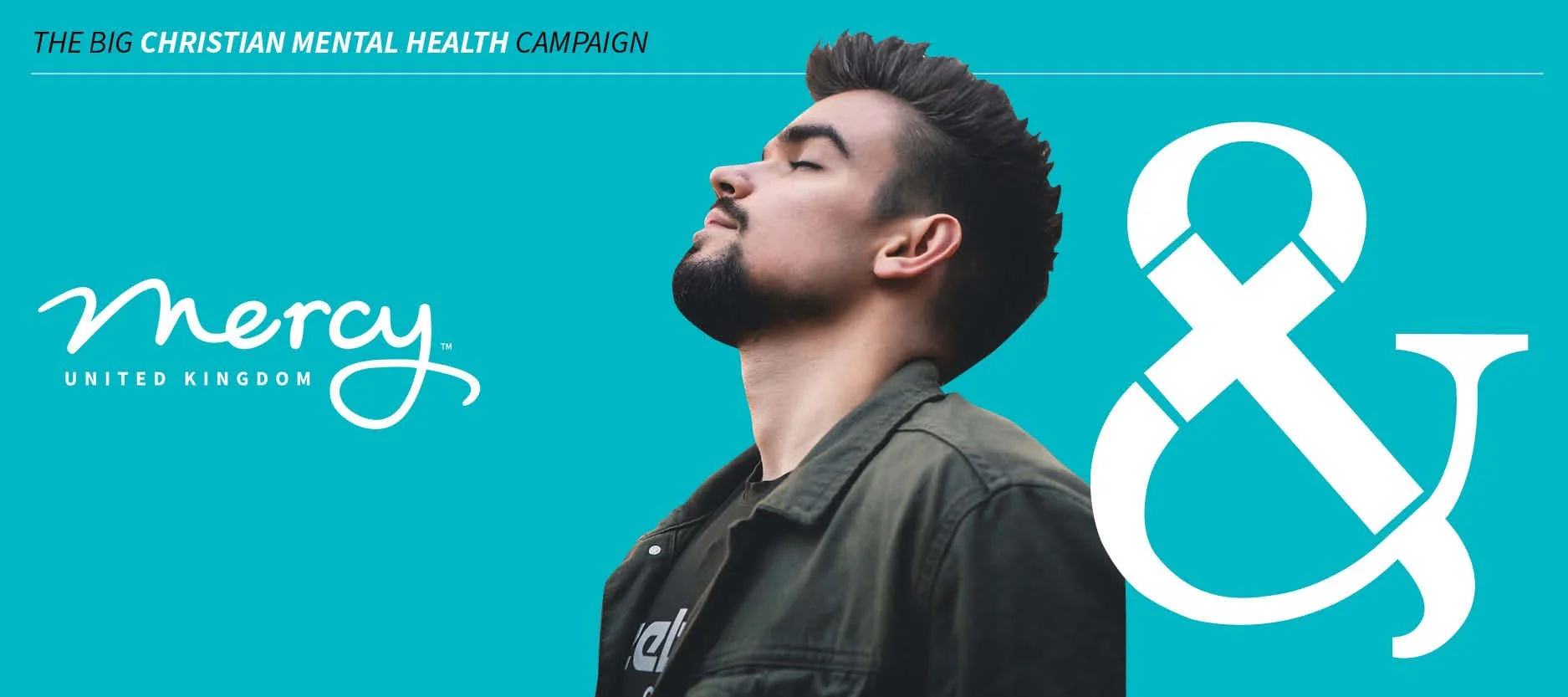Embracing Neurodiversity
The concept of neurodiversity is increasingly gaining recognition and importance across different sectors of society, including education, workplaces, and communities. However, discussions about neurodiversity within the Church are still seemingly in the early stages. Speaking about this topic at a recent church conference, where I shared the stage with someone with lived experience of several neurodiverse conditions, I was struck by the strong and novel sense of validation various members of the audience, a number of whom spoke of their own lived experience, felt just from the fact that it was being discussed.
This article explores the distinct contributions and challenges encountered by individuals with diverse neurological profiles – such as autism, developmental co-ordination disorder (DCD) and dyslexia – within Church settings. It also seeks to make the case for embracing neurodiversity in order to cultivate more inclusive, compassionate, and spiritually enriching environments, where every member of the congregation is valued and supported in their faith journey.
What does this term ‘neurodiversity’ mean?
Neurodiversity is an umbrella term to identify people whose brains work differently than most others – the so-called ‘neurotypicals’, resulting in different strengths and challenges. These can manifest in conditions such as autism, ADHD, dyslexia, and DCD, amongst others.
Rather than viewing these differences as mental illness or disorders that need to be "fixed," the neurodiversity perspective views them as part of the normal variation in human brains and minds. This approach promotes greater inclusion and equity when we consider the differences in how our brains are wired.
Here are some examples of how neurodiversity may present:
Ruth, a 4-year-old girl, is brought to her doctor because her parents are concerned that she has not started talking yet and seems uninterested in playing with other children. She prefers to line up her toys in a specific order, rather than engaging in imaginative play. In nursery, she often becomes upset by changes in routine and avoids eye contact with her teachers and peers. The doctor observes that she exhibits repetitive hand-flapping and repeats phrases she hears, rather than engaging in spontaneous speech.
This is an example of Autism Spectrum Disorder (ASD), which is characterised by difficulties in social interaction, communication, and the presence of restricted, repetitive behaviours or interests.
• Social communication challenges: individuals with ASD often have difficulties with verbal and nonverbal communication, understanding and interpreting social cues, and forming and maintaining relationships.
• Repetitive behaviours: This can include repetitive movements (e.g., hand-flapping, rocking), insistence on sameness or routines, and intense focus on specific interests or activities.
• Sensory sensitivities: Many people with ASD are highly sensitive to sensory inputs such as sounds, lights, textures, or smells, which can lead to either hyper- or hypo-reactivity to sensory stimuli.
The term "spectrum" reflects the wide variation in challenges and strengths possessed by each person with autism.
Matthew, a 9-year-old boy, has been struggling with reading since his first year of school. Despite extra help from his teacher and parents, he reads slowly, often mixing up letters like "b" and "d" and struggling to decode new words. In class, he tries to avoid reading out loud and frequently guesses words rather than sounding them out. His difficulty with reading is beginning to affect his performance in other subjects, such as maths, where word problems pose a significant challenge. Despite these difficulties, he is articulate and shows a strong understanding of concepts when they are presented verbally.
Dyslexia is a specific learning disorder that primarily affects reading and related language-based processing skills, as described in Matthew’s case. Individuals with dyslexia often struggle with accurate and/or fluent word recognition i.e. relating sounds to letters/words. Spelling and decoding can be challenging, despite normal intelligence and adequate instruction. People with dyslexia thus appear to be bright orally but find it hard to get information down accurately on paper.
Mary, an 8-year-old girl, has always struggled with tasks that require motor coordination. In school, she finds it difficult to write legibly, often holding the pencil awkwardly and tiring quickly. Her parents and teachers notice that she frequently trips or bumps into objects and has trouble catching a ball during recess. Despite her enthusiasm, she becomes frustrated during art class because her drawings do not match what she envisions. While she is academically bright, her difficulty with motor tasks affects her confidence and participation in physical activities.
Mary’s challenges are indicative of Developmental Coordination Disorder (DCD or Dyspraxia), more commonly referred to as dyspraxia, is a motor skills disorder that affects a person’s ability to perform coordinated, everyday physical tasks. Children with DCD often have difficulty with activities like writing, dressing, and sports, which require fine and gross motor coordination.
What causes these conditions?
Neurodiverse conditions are thought to arise from a combination of genetic, biological and environmental factors.
1. Genetic Factors: Variations or mutations in certain genes (but no one specific gene) can influence brain development and function. These genetic factors can be inherited from parents or occur spontaneously.
2. Biological Factors: Differences in brain structure and function have been identified between neurotypical and neurodiverse conditions. For example, research has shown that individuals with autism may have differences in brain connectivity, while those with dyslexia might have variations in areas of the brain responsible for processing language.
3. Environmental Factors: Environmental influences, particularly during prenatal development (i.e. in the womb), can also play a role. Factors such as poor maternal health, infections during pregnancy and complications at birth may contribute to the development of neurodiverse conditions. However, these factors often interact with genetic predispositions rather than acting as sole causes.
It's important to note that the causes of neurodiverse conditions are not fully understood and are likely to involve multiple contributing factors rather than a single cause.
What impact does neurodiversity have on Christian faith for those with these conditions?
Neurodiversity can have a profound impact on the Christian faith experience for individuals with neurodiverse conditions, both positively and in more challenging ways:
1. Unique spiritual perspectives and approaches: Neurodiverse individuals often bring unique insights and perspectives to their faith and Church communities. For instance, someone with autism might adopt a highly analytical or detailed approach to their reading of Scripture, finding deep meaning in specific words, phrases or patterns. Others might find comfort in repetitive prayers or rituals that provide structure and predictability. Someone with ADHD might prefer more active or varied forms of worship, such as walking meditation or creative arts, rather than prolonged periods of silent prayer.
2. Challenges in communal worship: Traditional church services and activities can sometimes pose challenges for neurodiverse individuals. For example, those with sensory hypersensitivity (e.g. to sound, light or touch, associated with autism or ADHD) might find loud music, bright lights, or crowded spaces unsettling. Similarly, long periods of stillness or structured activities might be difficult for those with poor attention or motor coordination issues.
3. Community and inclusion: Feeling accepted and included in the faith community is crucial for spiritual growth. Neurodiverse individuals might experience challenges in social interactions, making it difficult to connect with others in the church. These challenges may lead to feelings of alienation or frustration. Some neurodiverse individuals may also grapple with questions about their identity and place within God's creation, seeking assurance that they are valued and loved as they are.
4. Theological reflection and understanding: Neurodiversity can influence how individuals understand and relate to theological concepts. For instance, abstract concepts like grace or the Holy Trinity might be difficult for someone with a concrete thinking style, while others might find deep meaning in the stories of Jesus' interactions with marginalized individuals.
In summary, neurodiversity can shape the Christian faith experience in various ways, offering both unique challenges and enriching perspectives. When churches acknowledge and support neurodiverse individuals, they not only enhance these individuals' spiritual lives but also enrich the entire faith community by embracing the full spectrum of God's creation.
How can we best support neurodiverse Christians?
1. Fostering a more inclusive environment
Awareness: Church leaders and neurodiverse congregants may educate the congregation about neurodiversity to reduce stigma and increase understanding, either during specific neurodiverse awareness days/weeks (such as World Autism Acceptance Week) or at any time of the year. This could involve workshops, sermons, or small group discussions focused on neurodiverse conditions.
Cultivating a culture of acceptance: Differences can be explicitly respected and celebrated, with encouragement for all members to adopt an attitude of patience, understanding, and accommodation of diverse needs. For example, some neurodiverse people may prefer to stand or move around during services, or use noise-cancelling headphones to manage sensory input.
2. Adapting Church services and activities
Sensory-friendly services: Worship may be made more sensory-friendly by offering lower lighting, softer music, and/or designated quiet spaces (with comfortable seating and minimal sensory stimuli), where people can retreat if they feel overwhelmed. Being willing to adapt and evolve church practices based on the needs and suggestions of neurodiverse members, demonstrates a commitment to their well-being.
Physical accessibility: There is a need to ensure that all areas of the church are accessible to those with physical disabilities, which often co-occur with neurodiverse conditions. This includes ramps, seating arrangements, and accessible restrooms.
Supporting spiritual growth: Some neurodiverse people would benefit from having access to information ahead of the weekend service about the Bible verses that will be covered, as they may find it challenging to follow the sermon without prior preparation. Additionally, if the sermon notes available afterwards, this allow people to review and digest the content, especially if they lost focus during the service. Providing materials in multiple formats (e.g., written, visual, auditory) caters to different learning styles.
3. Engagement and inclusion in ministry
Identify and utilise strengths: Neurodiverse individuals should be explicitly encouraged to use their strengths and gifts in ministry roles. This might include tech support, creative arts, or being on the welcome team, or someone with a passion for detail might excel in a roles that involves organising or maintaining records.
Open communication: Opportunities can be created for neurodiverse individuals and their families to provide feedback on church programmes and services.
Mentorship: Implementing mentorship or buddy systems where neurodiverse individuals are paired with supportive peers can help them navigate social situations more easily and feel more connected to the community.
By implementing these strategies, churches can create a supportive and nurturing environment where neurodiverse Christians feel valued, understood, and able to fully participate in the life of the Church. This not only benefits the individuals but also enriches the entire faith community.
Where can I get more information?
https://www.autism.org.uk/
https://www.bdadyslexia.org.uk/dyslexia/neurodiversity-and-co-occurring-differences/dyspraxia
Chi-Chi Obuaya - Dr Chi-Chi Obuaya is a Consultant Psychiatrist working in an NHS ADHD service and in independent practice, as well as a Mind & Soul Foundation Director.


































